
Kings Row is a 1942 film starring Ann Sheridan, Robert Cummings, Ronald Reagan and Betty Field that tells a story of young people growing up in a small American town at the turn of the twentieth century. The picture was directed by Sam Wood. The film was adapted by Casey Robinson from a best-selling 1940 novel of the same name by Henry Bellamann. The musical score was composed by Erich Wolfgang Korngold, and the cinematographer was James Wong Howe. The supporting cast features Charles Coburn, Claude Rains, Judith Anderson and Maria Ouspenskaya.

Watch on the Rhine is a 1943 American drama film directed by Herman Shumlin and starring Bette Davis and Paul Lukas. The screenplay by Dashiell Hammett is based on the 1941 play Watch on the Rhine by Lillian Hellman. Watch on the Rhine was nominated for the Academy Award for Best Picture and Paul Lukas won the Academy Award for Best Actor for his performance as Kurt Muller, a German-born anti-fascist in this film.
Irving Rapper was a British-born American film director.

Now, Voyager is a 1942 American drama film starring Bette Davis, Paul Henreid, and Claude Rains, and directed by Irving Rapper. The screenplay by Casey Robinson is based on the 1941 novel of the same name by Olive Higgins Prouty.
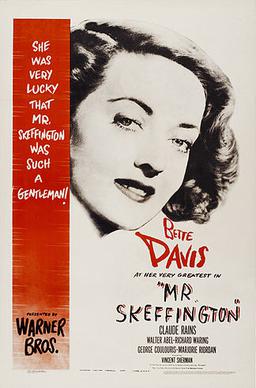
Mr. Skeffington is a 1944 American drama film directed by Vincent Sherman, based on the 1940 novel of the same name by Elizabeth von Arnim.
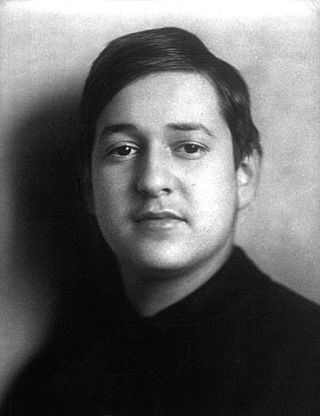
Erich Wolfgang Korngold was an Austrian composer and conductor, who adopted US nationality after fleeing from Europe. A child prodigy, he became one of the most important and influential composers in Hollywood history. He was a noted pianist and composer of classical music, along with music for Hollywood films, and the first composer of international stature to write Hollywood scores.

Paul Henreid was an Austrian-American actor, director, producer, and writer. He is best remembered for two film roles: Victor Laszlo in Casablanca and Jerry Durrance in Now, Voyager, both released between 1942 and 1943.
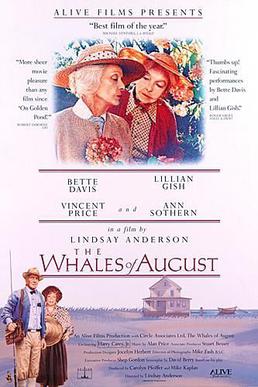
The Whales of August is a 1987 American drama film directed by Lindsay Anderson and starring Bette Davis and Lillian Gish as elderly sisters. Also in the cast were Ann Sothern as one of their friends, and Vincent Price as a peripheral member of the former Russian aristocracy. The story is based on the play of the same title by David Berry.

The Private Lives of Elizabeth and Essex, for a time also entitled Elizabeth the Queen, is a 1939 American historical romantic drama film directed by Michael Curtiz and starring Bette Davis, Errol Flynn, and Olivia de Havilland. Based on the play Elizabeth the Queen by Maxwell Anderson—which had a successful run on Broadway with Lynn Fontanne and Alfred Lunt in the lead roles—the film fictionalizes the historical relationship between Queen Elizabeth I and Robert Devereux, 2nd Earl of Essex. The screenplay was written by Norman Reilly Raine and Aeneas MacKenzie.

Juarez is a 1939 American historical drama film directed by William Dieterle. The screenplay by Aeneas MacKenzie, John Huston, and Wolfgang Reinhardt is based on the 1934 biography The Phantom Crown by Bertita Harding and the 1925 play Juarez and Maximilian by Franz Werfel.
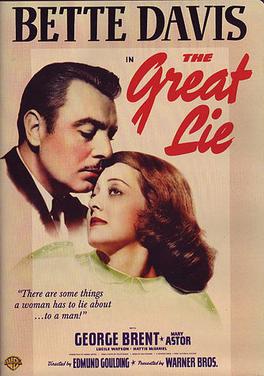
The Great Lie is a 1941 American drama film directed by Edmund Goulding, and starring Bette Davis, George Brent and Mary Astor. The screenplay by Lenore J. Coffee is based on the novel January Heights by Polan Banks.

A Stolen Life is a 1946 American drama film starring Bette Davis, who also produced it. The film, based on the 1935 novel A Stolen Life by Karel Josef Benes, was directed by Curtis Bernhardt. Among the supporting cast are Glenn Ford, Dane Clark, Peggy Knudsen, Charlie Ruggles, and Bruce Bennett. It is a remake of the 1939 British film Stolen Life starring Elisabeth Bergner and Michael Redgrave.
Eleanor Aller (Slatkin) (May 20, 1917 – October 12, 1995) was an American cellist and founding member, with her husband, Felix Slatkin, of the Hollywood String Quartet.
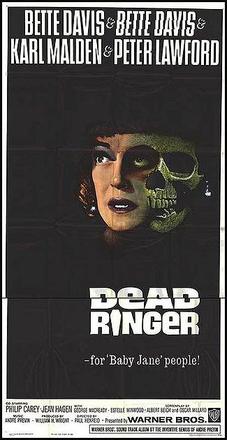
Dead Ringer is a 1964 American psychological thriller made by Warner Bros. It was directed by Paul Henreid from a screenplay by Oscar Millard and Albert Beich, from the story La Otra by Rian James, previously filmed in a Mexican version starring Dolores del Río. The soundtrack is by André Previn and the cinematography by Ernest Haller. The film stars Bette Davis, Karl Malden and Peter Lawford with Philip Carey, Jean Hagen, George Macready, Estelle Winwood, George Chandler and Cyril Delevanti.

Louis Jacques Marie Collin du Bocage, better known by the pen name Louis Verneuil, was a French playwright, screenwriter, and actor.

20,000 Years in Sing Sing is a 1932 American pre-Code drama film set in Sing Sing Penitentiary, the maximum security prison in Ossining, New York, starring Spencer Tracy as an inmate and Bette Davis as his girlfriend. It was directed by Michael Curtiz and based on the nonfiction book, Twenty Thousand Years in Sing Sing, written by Lewis E. Lawes, the warden of Sing Sing from 1920 to 1941.

Of Human Bondage is a 1946 American drama film directed by Edmund Goulding and starring Paul Henreid, Eleanor Parker and Alexis Smith. The second screen adaptation of W. Somerset Maugham's 1915 novel, this Warner Bros. sanitized version was written by Catherine Turney. The central characters are Philip Carey, a clubfooted medical student, and Mildred Rogers, a low-class waitress with whom he becomes obsessed.

Winter Meeting is a 1948 American drama film directed by Bretaigne Windust and starring Bette Davis and Jim Davis. The screenplay, based on the novel of the same name by Grace Zaring Stone, was written by Catherine Turney.

Of Human Bondage is a 1964 British drama film directed by Ken Hughes and starring Kim Novak and Laurence Harvey in the roles played by Bette Davis and Leslie Howard three decades earlier in the original film version. This MGM release, the third screen adaptation of W. Somerset Maugham's 1915 novel, was written by Bryan Forbes from the novel by Somerset Maugham.

Hollywood Canteen is a 1944 American musical romantic comedy film starring Joan Leslie, Robert Hutton, Dane Clark and features many stars in cameo roles. and produced by Warner Bros. The film was written and directed by Delmer Daves and received three Oscar nominations.


















